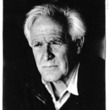Victory Square
Description
More Details
9780312369712
9781481584630
Excerpt
Similar Series From Novelist
Similar Titles From NoveList
Similar Authors From NoveList
Published Reviews
Booklist Review
"*Starred Review* In the fifth and final installment of Steinhauer's masterful Eastern European series, the story is once again told by Emil Brod. In The Bridge of Sighs (2003), it was 1948 and he was an inexperienced 22-year-old inspector in the People's Militia; now, in 1989, he's a tired 64 and its chief. Like Brod, his unnamed country has grown old. And over the course of six days, as Brod's final case leads him back to his first, the government will fall and the fight for the future may be over before it's begun. If previous books upped the narrative ante, depicting the trials of crime solving in an iron curtain country, this one goes all in: Brod must find out why his own name is on a hit list while dodging riots, road closures, and sniper fire. This is remarkable storytelling, exploring the life cycle of a state through the eyes of political idealists, government informants, and good cops like Brod who just want to solve crimes. Steinhauer also offers a convincing portrait of the psychological shock that accompanies the downfall of even a hated dictator. Totalitarianism may have been intolerable, but as we see today in the countries of the former Soviet bloc, uncertain times can make citizens nostalgic for known evils."--"Graff, Keir" Copyright 2007 Booklist
Publisher's Weekly Review
At the start of Edgar-finalist Steinhauer's fine fifth and final entry in his series set in an unnamed Eastern European Communist country (after 2006's Liberation Movements), homicide inspector Emil Brod, now chief of police and three days from retirement, reluctantly investigates the death of Lt. Gen. Yuri Kolev. Though Kolev apparently died of a heart attack, the coroner finds deadly levels of cocaine and heroin in his blood, and a flier in Kolev's car suggests he may have been murdered by members of an underground prodemocracy group. Soon Brod uncovers a wide-ranging plot involving old friends and enemies, all of whom are frantic to take advantage of the situation when their fellow citizens, inspired by the recent fall of the Berlin Wall and the collapse of governments in neighboring countries, rise up to overthrow their Communist leaders. Employing an intricate story, characters both sympathetic and despicable as well as a remarkable sense of place, Steinhauer subtly illuminates an unforgettable historical moment. (Aug.) (c) Copyright PWxyz, LLC. All rights reserved
Library Journal Review
It is 1989 in a small, fictitious Eastern European country set to explode as its 40-year-old revolution teeters on the edge of collapse. At the same time, a murderer is on a rampage. Now head of the People's Militia and nearing retirement, Emile Brod reopens a case that started his career in the 1940s (as recounted in The Bridge of Sighs) even as he finds his name on a list of elderly people to be eliminated. Events come fast and furiously, leaving the country in a shambles and Brod's team in disarray. Steinhauer's highly praised Eastern Europe series has been nominated for the Edgar, the Anthony, the Macavity, and other awards. The author lives in Budapest. [See Prepub Mystery, LJ 4/1/07.] (c) Copyright 2010. Library Journals LLC, a wholly owned subsidiary of Media Source, Inc. No redistribution permitted.
Kirkus Book Review
In the almost brilliant conclusion of his ambitious Eastern European series (Liberation Movements, 2006, etc.), Steinhauer focuses on what happens to moral codes in a collapsing country. It's a tumultuous period. To Emil Brod, Chief of the People's Militia in his hard-pressed (unnamed) little country, it's as if "time was snapping in half." With the economy in shambles, rations and tempers are growing short, and the long-ruling Pankov government is in much more trouble than it thinks. Brod--met first as an idealistic 22-year-old cop at the onset of his career--is now 63, about to retire, and glad of it. He works his cases, yes, but that's because he's a man to whom persistence has always amounted to a matter of honor. In company with almost everyone around him, however--in particular his tough-minded, sharply observant wife--he senses that the center will not hold, and that a flight plan might be advisable. At this point, almost by accident, he comes upon certain unsettling information: a list, six names, among them his. Two of those named have already been killed in circumstances undeniably suspicious, and there's every reason to believe that the power behind the deaths is highly placed and highly motivated. Brod looks for a common thread and finds it. Forty years ago, he helped jail Jerzy Michalec, a Nazi war criminal. All the people on the list were involved to some degree too. For his own sake, and for the sake of those he cares deeply about, Brod must now figure out why they've suddenly become targets. He needs answers, and he gets them--but by the time he does, he's no longer quite the good man he was. A Kafka-like evocation that loses some of its chill when the research begins to show. Still, the first 200 pages are masterful. Copyright ©Kirkus Reviews, used with permission.
Booklist Reviews
*Starred Review* In the fifth and final installment of Steinhauer's masterful Eastern European series, the story is once again told by Emil Brod. In The Bridge of Sighs (2003), it was 1948 and he was an inexperienced 22-year-old inspector in the People's Militia; now, in 1989, he's a tired 64 and its chief. Like Brod, his unnamed country has grown old. And over the course of six days, as Brod's final case leads him back to his first, the government will fall—and the fight for the future may be over before it's begun. If previous books upped the narrative ante, depicting the trials of crime solving in an iron curtain country, this one goes all in: Brod must find out why his own name is on a hit list while dodging riots, road closures, and sniper fire. This is remarkable storytelling, exploring the life cycle of a state through the eyes of political idealists, government informants, and good cops like Brod who just want to solve crimes. Steinhauer also offers a convincing portrait of the psychological shock that accompanies the downfall of even a hated dictator. Totalitarianism may have been intolerable, but as we see today in the countries of the former Soviet bloc, uncertain times can make citizens nostalgic for known evils. Copyright 2007 Booklist Reviews.
Library Journal Reviews
The past has chief inspector Emil Brod looking over his shoulder in the fifth of the acclaimed Eastern European series. Steinhauer lives in Budapest, Hungary.-Ann Kim Copyright 2007 Reed Business Information.
Library Journal Reviews
It is 1989 in a small, fictitious Eastern European country set to explode as its 40-year-old revolution teeters on the edge of collapse. At the same time, a murderer is on a rampage. Now head of the People's Militia and nearing retirement, Emile Brod reopens a case that started his career in the 1940s (as recounted in The Bridge of Sighs ) even as he finds his name on a list of elderly people to be eliminated. Events come fast and furiously, leaving the country in a shambles and Brod's team in disarray. Steinhauer's highly praised Eastern Europe series has been nominated for the Edgar, the Anthony, the Macavity, and other awards. The author lives in Budapest. [See Prepub Mystery, LJ 4/1/07.]
[Page 60]. Copyright 2007 Reed Business Information.Publishers Weekly Reviews
At the start of Edgar-finalist Steinhauer's fine fifth and final entry in his series set in an unnamed Eastern European Communist country (after 2006's Liberation Movements ), homicide inspector Emil Brod, now chief of police and three days from retirement, reluctantly investigates the death of Lt. Gen. Yuri Kolev. Though Kolev apparently died of a heart attack, the coroner finds deadly levels of cocaine and heroin in his blood, and a flier in Kolev's car suggests he may have been murdered by members of an underground prodemocracy group. Soon Brod uncovers a wide-ranging plot involving old friends and enemies, all of whom are frantic to take advantage of the situation when their fellow citizens, inspired by the recent fall of the Berlin Wall and the collapse of governments in neighboring countries, rise up to overthrow their Communist leaders. Employing an intricate story, characters both sympathetic and despicable as well as a remarkable sense of place, Steinhauer subtly illuminates an unforgettable historical moment. (Aug.)
[Page 41]. Copyright 2007 Reed Business Information.






































